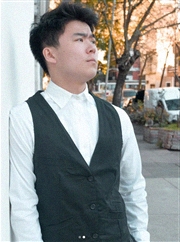Tutor HuntResources English Resources
Portrayal Of Love And Growth In Call Me By Your Name
Sample English Literature Analysis
Date : 30/06/2020
Author Information

Uploaded by : Leonardo
Uploaded on : 30/06/2020
Subject : English
AbstractThis essay explores the different literary techniques Andr Aciman uses to convey the theme of romantic relationships motivate growth in Call Me by Your Name. It examines with a New Criticism lens, the style and the various literary devices the author utilizes to reflect how the love affair between the protagonist and his love interest influences his development in multiple levels. Elio, the protagonist is the epitome of a cynical teenager, and starts to develop his character as an individual thanks to Oliver the summer guest. In multiple scenes in the beginning Elio reflects upon how Oliver modified the cultural setting, and consequently made him a better version of himself. Elio eventually finds himself exploring Oliver s personality by taking part in his hobbies, and starts to modify his lifestyle. Elio finds that he admires the way Oliver thinks and does, and eventually Oliver becomes Elio s role model. Elio starts to explore his more emotional side in Aciman s recharacterization of him as sentimental in recalling his memories with Oliver. Elio with the romantic feelings he has for Oliver, starts to develop his identity and understand his bisexuality. With the manipulation of certain love-related metaphors Aciman portrays Elio s growth in interests and the evolution of his reason to be. Aciman employs repetitions and rhetorical questions to establish Elio s sexual awakening and the development of his sexual maturity.Research Question
Works Cited
Aciman, Andr . Call Me By Your Name. 3rd ed., Atlantic Books, 2009.
Works Cited
Aciman, Andr . Call Me By Your Name. 3rd ed., Atlantic Books, 2009.
This resource was uploaded by: Leonardo
